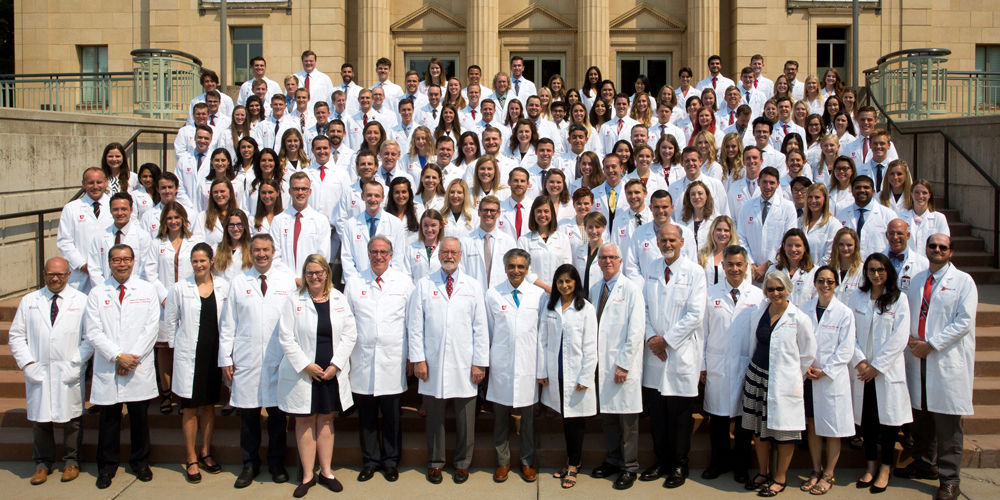Why do we do what we do?
I’m lucky to still speak to my father, who lives in California, almost every day. He’s a retired businessman who enjoyed a fulfilling career. When we talk, he doesn’t ask how many esophageal surgeries I perform on a given Thursday. He wants to know about the meaning . What does it mean to me ? What’s important to him is knowing that I derive value from my work.
As we welcome a new group of first-year students to our schools and colleges, it is this type of value we need to nurture within students. Core beliefs and principles underlie a person’s understanding of what really matters in life. Personal values guide us and give meaning to what we do.
I know what it means to stand at somebody's bedside when they're critically ill. Or, sit next to someone in the office trying to make life or death decisions. I know what it means to be in situations when things aren't going well for whatever reason, and I know how to celebrate with somebody when things go well. The most rewarding aspect of my career happens when I've committed to helping a patient navigate a complex problem.
I’ve found that people who are most determined to achieve meaningful careers are those at the very beginning of their professional journey, like our first-year students who just participated in white coat ceremonies in front of proud family members.
We as faculty and administrators at academic medical centers have a duty to inspire our students to hold onto the personal values that brought them to our campus. I would argue that too many of us—those teaching, guiding, and serving as role models for students—have stopped asking ourselves why we do what we do and if we still find meaning in it. The mental fatigue and emotional detachment within our profession contributes to burnout and disengagement. In the last few years, the medical community has started talking about it as an epidemic.
I recently attended an instructive talk on our campus given by Tait Shanafelt, MD, a physician and wellness researcher at Stanford University. Like the University of Utah, Stanford is focused on wellness for health care providers. Shanafelt told us the only thing his team has found to stem burnout is by asking providers to commit 15 to 20 percent of their time to doing work “that is truly meaningful to them.”
From my vantage point, meaningful activity doesn’t have to be separate from our daily lives and everyday duties. It means being part of a team committed to the same thing. I’m lucky to be part of a great clinical team and lead with my fellow Chief Value Officers, a group who explores system-level contributors to burnout. By making a difference in other people’s lives, we remember our core values and the necessity of fulfillment in our own.
Robert Glasgow
When life gets busy, it’s easy to forget what keeps us grounded and therefore more satisfied with life. Sydney Ryan reflects on the importance of making time for yourself and prioritizing what is important for you. She explains simple, deliberate actions that have made a difference in her work and her life.
Family Medicine physician and co-director of the Resiliency Center Amy Locke outlines five ways U of U Health’s strategic commitment to well-being is paying off during COVID-19.
M.ED host Kerry Whittemore speaks to Michelle Vo, director of Medical Student Wellness, about the mental health challenges many students face in medical school, as part of the Medical Education for the Practicing Clinician podcast series.
